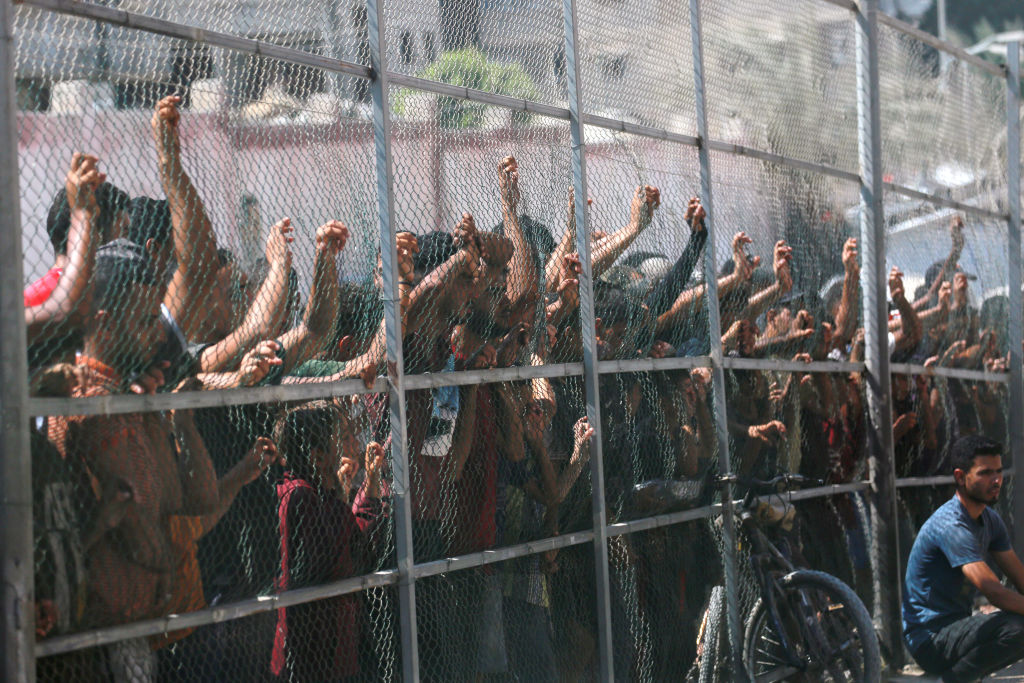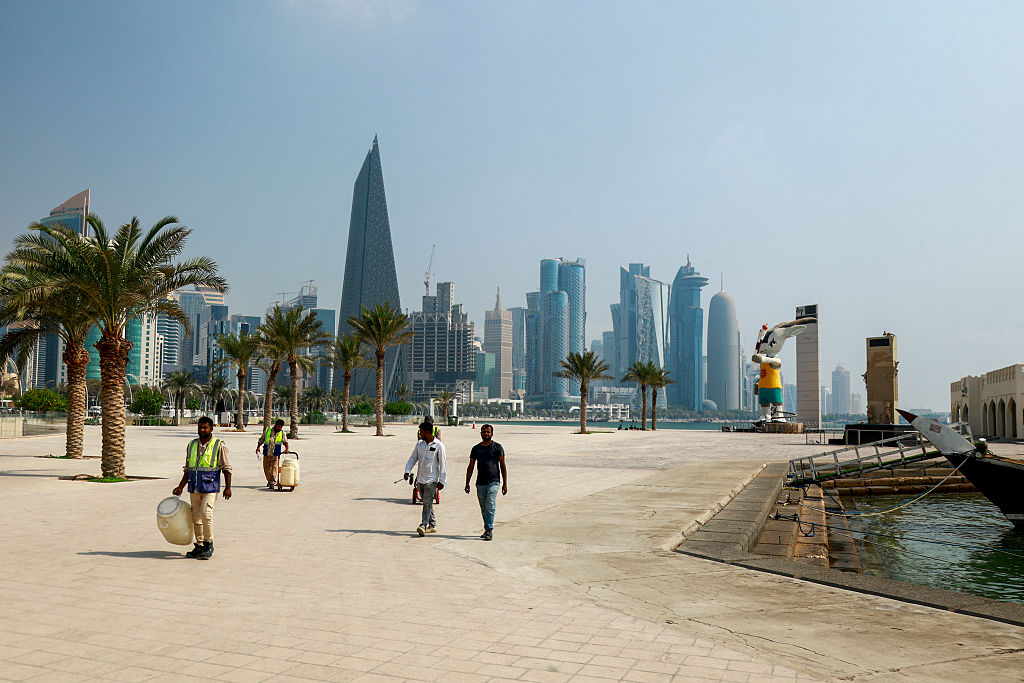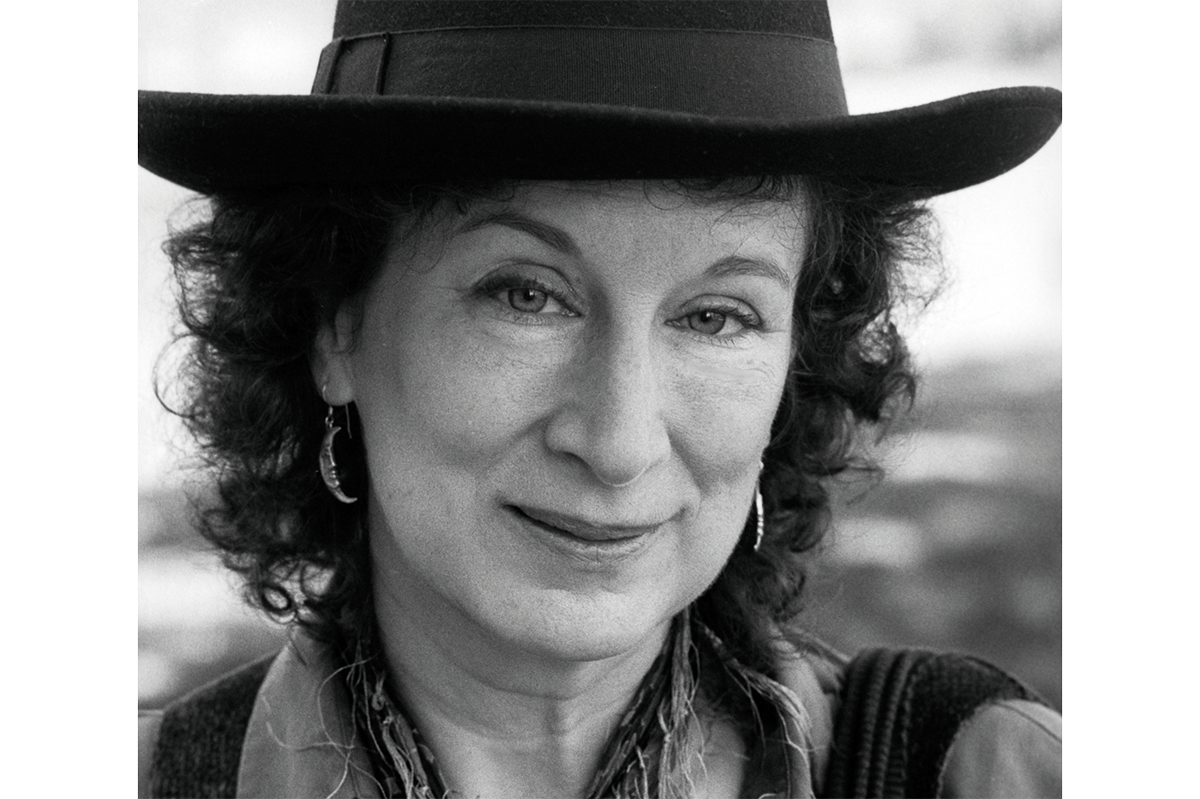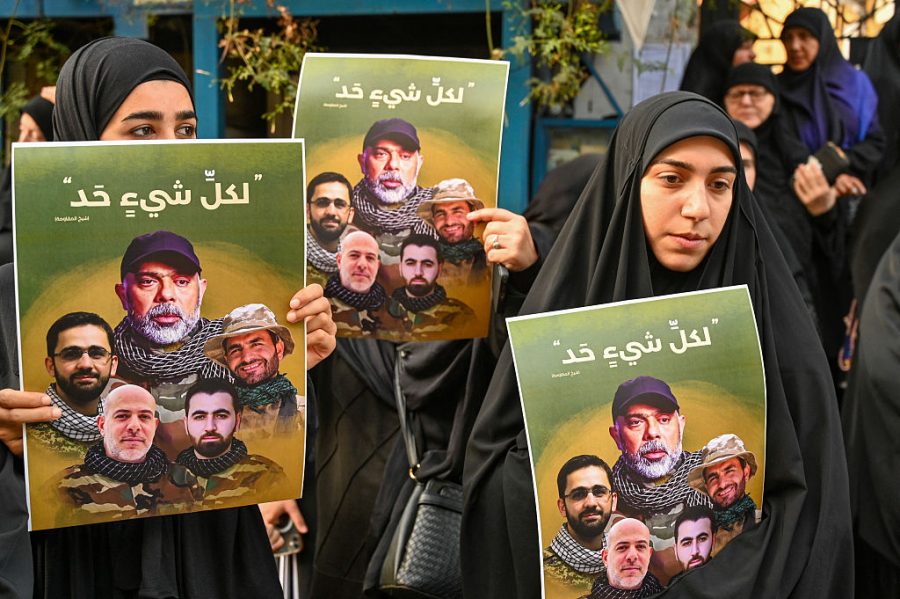Everywhere you turn in conversations about Israel, Gaza, Jews and antisemitism right now, the long-promised specter of expansion and escalation is… well… escalating. More than nine months into Israel’s war with Hamas, the rhetoric of conflict and activism has escalated into violent confrontations on the battlefields of war, politics and protest.
Across Israel’s northern flank, for instance, its months-long flare-up with Hezbollah is quickly escalating into an all-out war as the Iranian-backed militia killed a pair of Israeli civilians last week via rockets launched from Lebanon. As evidenced by Biden administration efforts at containment, Israel’s inevitable retaliation could escalate the northern crisis into a formalized military campaign that would level much of Lebanon.
Israel’s incursions into the West Bank to rout out increasingly emboldened Hamas fighters have also escalated into what has essentially become a third battle front between the Israeli Defense Forces and Islamists. A recent New York Times report detailed the Hamas take-over of towns such as Tulkarm and Jenin, which had traditionally allied themselves with the far more moderate rival faction Fatah. Iran, or course, is stoking these flames via money and munitions often smuggled through Jordan.
The resulting skirmishes between Palestinians and both Israeli soldiers and settlers are now so common — and intense — that the US State Department recently levied sanctions against a handful of Israeli instigators. Hamas interference, said a Fatah spokesperson, has also hindered any effort (or hope) for the two-state solution most Palestinians view as their only path toward any semblance of independence. And, if on cue, new British foreign minister David Lammy recently arrived to the region to help deescalate the West Bank violence while pressing for a ceasefire and Palestinian sovereignty.
Escalation is rife across Gaza, as well, where Hamas continues to ratchet up its demands to end the war and release the remaining Israeli hostages — just as fighting between IDF soldiers and Hamas in northern Gaza escalates to levels not seen since the war’s earliest days. Some 250,000 Gazans were told to leave Gaza City last week by the IDF as its troops battled against Hamas and the Islamic Jihad. The Israeli attack this past weekend to eliminate Hamas chief Muhammed Deif has raised tensions even further.
The return of clashes in areas previously considered under Israeli “control” only escalates domestic pressure on Israeli prime minister Benjamin Netanyahu to end the Gaza campaign and find a way to bring home the remaining Israeli captives. Also escalating, pressure on Netanyahu to resign. A recent poll by Israel’s Channel 12 revealed that 70 percent of Israelis believe Netanayhu must go, with the vast majority wanting him out now.
Despite the increase in hostilities across the Levant, the most worrisome escalations are actually taking place far from the battlefield. Throughout the West, threats by pro-Palestinian activists to “escalate the intifadah” are now resulting in full-scale attacks on Jews, Jewish institutions and Jewish-led businesses on frightening and unprecedented levels. They’re delegitimizing Israel’s war effort, erasing the plight of its hostages and questioning the Jewish nation’s right to exist as majority Jewish.
“Jewish Israelis must relinquish their privilege,” declared writer Ahmed Moor in a Guardian essay last week advocating for an end to any talk of a two-state solution in favor of some sort of single Israel-Palestine political entity. Jargony and perverse, Moor goes on to declare “that the horror meted out by Israelis” are of a “magnitude larger than the crimes perpetrated by Hamas on October 7″ — before describing an imaginary future featuring a reconstituted Israeli left that would, like some campus DEI affinity group, aid Israelis in renouncing their privilege.
Such a political movement, Moor continues, would also be “anti-Zionist, honest about history and aligned with the global movement for Palestinian rights.” But whose history? Considering Moor’s October 7 revisionism, such history would almost certainly read as an existential threat to Israel’s existence.
The oxygen afforded to such heretics is only matched by the noxiousness of increasingly ruthless pro-Palestine agitators. In Montreal, for instance, gunshots were fired at an Israeli-owned falafel shop that appeared on a list of restaurants to avoid “for those who do not wish to support businesses that acknowledge and/or support the Zionist entity.” These include, among others, the hit eatery Arthur’s, which boycott-organizers have declared it off-limits for the sin of “culturally appropriating Palestinian food” for serving “Israeli salad.”
Such silliness would be comical if the rest of the escalation crowd — particularly penalized college protesters — weren’t so dangerous. Indeed, never one to learn a lesson, students such as Prince Williams — who helped lead Harvard’s failed encampment takeover in the spring — promise to regroup and redouble their efforts once they return to campus in the fall. “We must understand our movement is working, our momentum is growing and Palestine will be free from the river to the sea,” he crows while promising higher-intensity resistance in the coming months.
Williams, a former leader of Harvard’s Palestine Solidarity Committee, is a particularly odious character, having helped pen the now infamous joint-decree blaming Israel for the October 7 Hamas attack barely hours after it began. Co-signed by more than thirty Harvard student groups while blood still flowed through Israeli kibbutzim, the missive almost single-handedly escalated anti-Israel murmurs into the global neo-Jihadism that’s now overtaken over the West.
Williams’s banter arrives amid a call for a “worldwide escalation” of anti-Israel activities as the Gaza war stretches into the summer. The goal today is to “escalate protests to an open intifada in every capital and city,” declared yet another bile-laden demand distributed by groups such as the Harvard Palestine Solidarity Committee and Princeton SJP during Israel’s recent campaign in Rafah.
The escalation strategy, said the Anti-defamation League last week, is not new. But they’ve become “unapologetically extreme — complete with manifestos and how-to guides circulated by groups such as the “Escalate Network.” The missive include TikTok-ready titles such as “We Don’t Need ‘Safety’ — We Need To Escalate!” and “FLOOD THE GATES: ESCALATE.” The result: A surge in arson and vandalism attacks against Jewish businesses, institutions and individuals, according to the ADL.
Such incidents are certain to increase as Israel inches towards its tenth month of battle. But considering escalations like the Harvard decree began well before Israel even entered Gaza, an end to Israel — not just an end of its war against Hamas — is the only de-escalation the pro-Palestine crowd truly desires.


























Leave a Reply